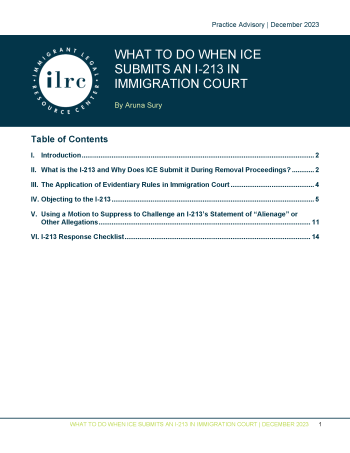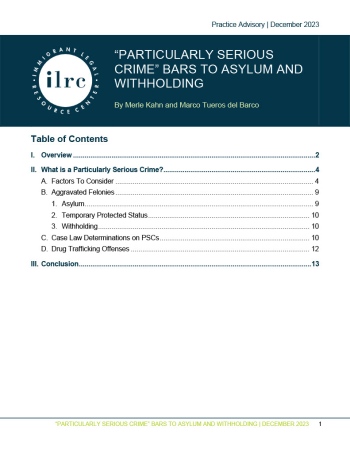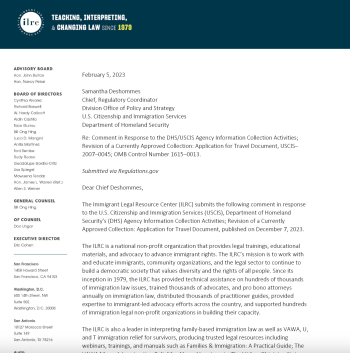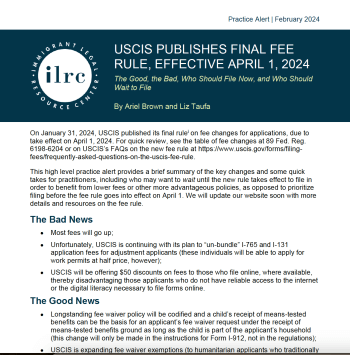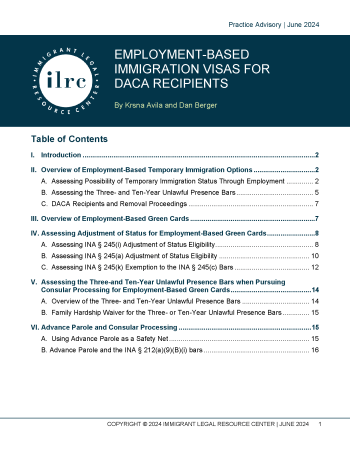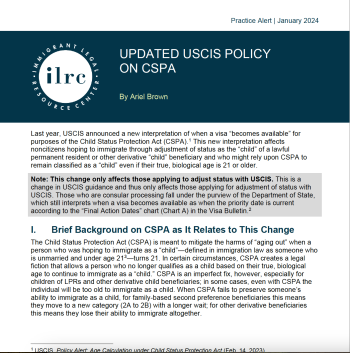The Immigrant Legal Resource Center (ILRC) immigration attorneys’ expertise focuses on family-based immigration, humanitarian relief, naturalization and citizenship, immigration enforcement, and removal defense.
Since 1979 we have helped expand the immigration expertise of attorneys, nonprofit staff, criminal defenders, and others assisting immigrant clients.
In addition to authoring the ILRC’s practice manuals, our expert attorneys have been published by Continuing Education of the Bar (CEB), American Immigration Lawyers Association (AILA), ILW.com, Huffington Post, Sargent Shriver National Center on Poverty Law, Center for Law and Social Policy, The Hill, LexisNexis Emerging Issues, and Fox News Latino.
We have also provided training to National Council of Juvenile and Family Court Judges, National Association of Criminal Defense Lawyers, American Immigration Lawyers Association (AILA), American Bar Association Commission on Immigration, Federal Bar Association, The State Bar of California, Legal Aid Association of California, Judicial Council of California and more.
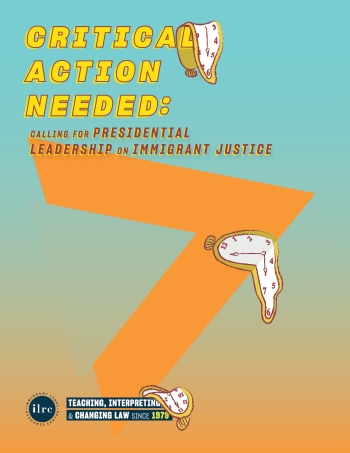

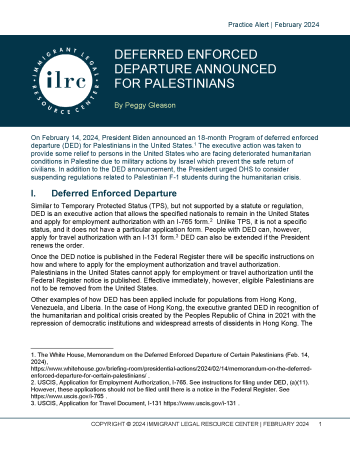
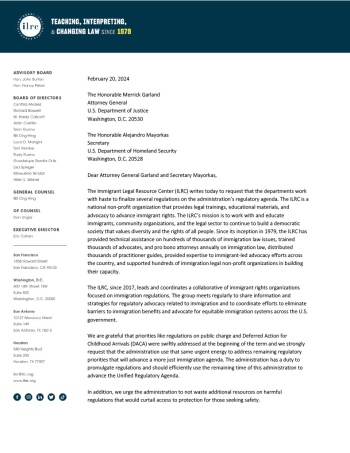

(OLS) and anti-immigrant legislation. It is important to note that these findings are within the context of Texas being a state with a strong pro-incarceration and anti-immigrant stance.
Este mapa muestra los condados en Texas que han implementado políticas y acciones contra inmigrantes, en particular bajo el Operativo Lone Star (OLS). Es importante tomar en cuenta que lo que muestra el mapa es bajo el contexto de que Texas es un estado con opiniones fuertes a favor del encarcelamiento y sentimientos anti-inmigrantes.
En Texas, inmigrantes, migrantes y personas de color enfrentan riesgos de diferentes niveles. Sin embargo, ningunas áreas pueden ser consideradas santuarios o jurisdicción donde no estén bajo amenaza de los departamentos de policía local, estatal, y federal.
Para obtener más recursos sobre el Operativo Lone Star, visite https://www.endlonestar.com/
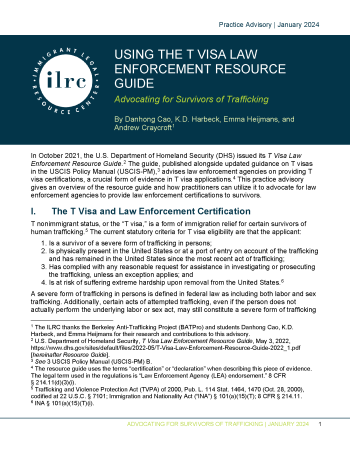
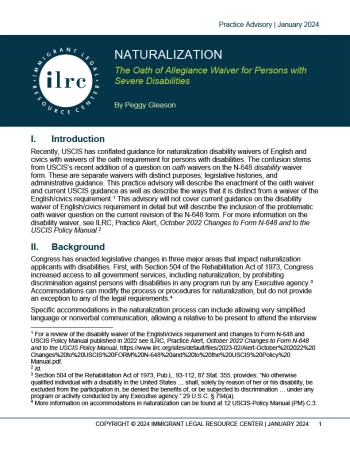
This practice advisory will describe the enactment of the oath waiver and current USCIS guidance as well as describe the ways that it is distinct from a waiver of the English/civics requirement.
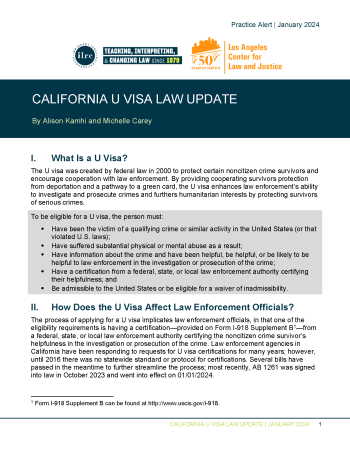
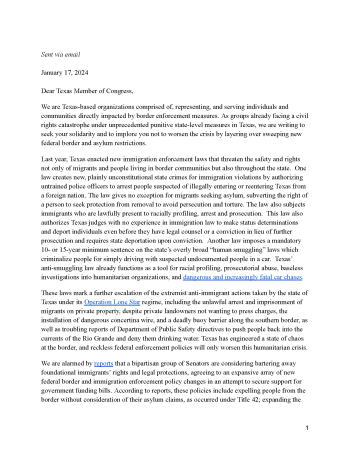
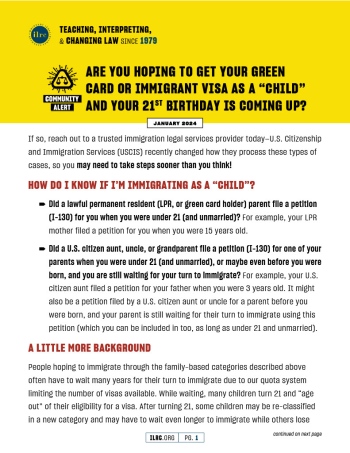
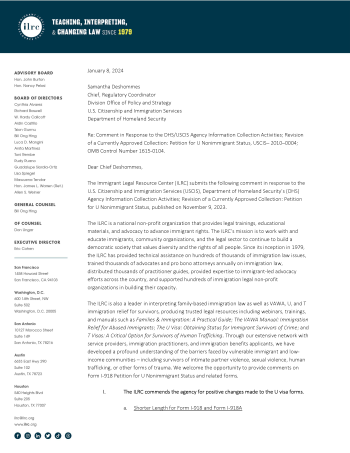
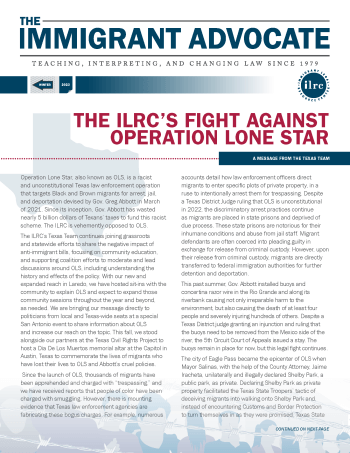
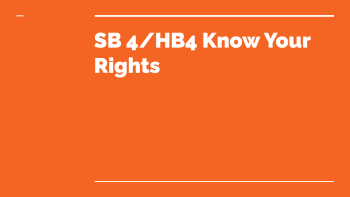
Community leaders, organizers, and activists are welcome to use this full slide deck as provided, or select the slides that are applicable to your presentation needs.
